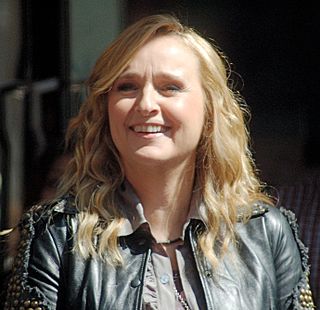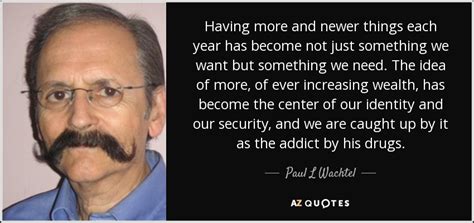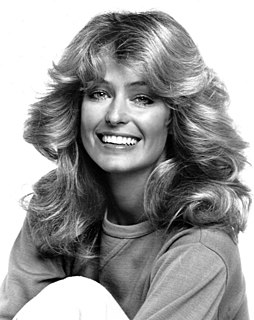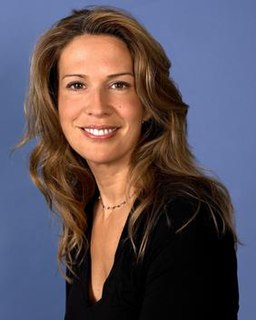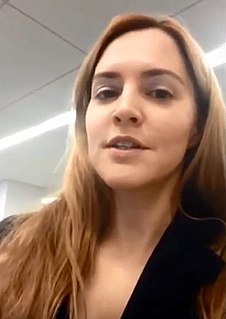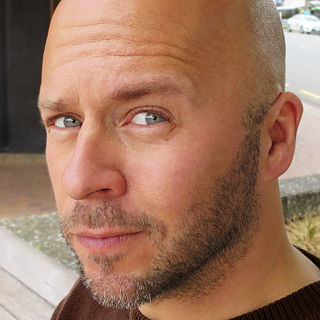A Quote by Melissa Etheridge
I have that gene mutation too and it’s not something I would believe in for myself. I wouldn’t call it the brave choice. I actually think it’s the most fearful choice you can make when confronting anything with cancer. My belief is that cancer comes from inside you and so much of it has to do with the environment of your body. It’s the stress that will turn that gene on or not.
Related Quotes
Very few people would choose to have even the most fabled assortment of goods if it meant getting cancer within the year. But the choice involves not the certainty of cancer very soon but an increased probability of cancer at some time in the future. The cancers are no less real; millions will die painfully and prematurely because of what we do to our environment. But the choice is not an easily visualizable one, and our capacity of denial comes strongly into play - as it tends to whenever we must weigh future costs against immediate benefits.
You've got to get away from the idea cancer is a disease to be cured. It's not a disease really. The cancer cell is your own body, your own cells, just misbehaving and going a bit wrong, and you don't have to cure cancer. You don't have to get rid of all those cells. Most people have cancer cells swirling around inside them all the time and mostly they don't do any harm, so what we want to do is prevent the cancer from gaining control. We just want to keep it in check for long enough that people die of something else.
I would never call myself a cancer survivor because I think it devalues those who do not survive. There's this whole mythology that people bravely battle their cancer and then they become survivors. Well, the ones who don't survive may be just as brave, you know, just as courageous, wonderful people.
A cancer is not simply a lung cancer. It doesn't simply have a certain kind of appearance under the microscope or a certain behavior, but it also has a set of changes in the genes or in the molecules that modify gene behavior that allows us to categorize cancers in ways that is very useful in thinking about new ways to control cancer by prevention and treatment.
The study of how substances alter gene expression is part of the field of epigenetics. Some chemical exposures appear to turn on and turn off genes in ways that disregulate cell growth and predispose for cancer. From this perspective, our genes are less the command-and-control masters of our cells and more like the keys of piano, with the environment as the hands of the pianist.
I don't live in the city, I don't work in a high-risk environment, and I am not a smoker. So it was never anything that would occur to me that I would get lung cancer, but the more I have learned about lung cancer is that it is becoming much more random, and it is striking women who are under 50 and are non-smokers and not in a risk environment.
I hope that other women can benefit from my experience. Cancer is still a word that strikes fear into people’s hearts, producing a deep sense of powerlessness. But today it is possible to find out through a blood test whether you are highly susceptible to breast and ovarian cancer, and then take action... It is my hope that they, too, will be able to get gene tested, and that if they have a high risk they, too, will know that they have strong options. Life comes with many challenges. The ones that should not scare us are the ones we can take on and take control of.
Cancer is manageable. That if you deprive cancer of what it wants, by proper nutrition, avoiding toxins, avoiding chemicals and pharmaceuticals, sleeping well, eliminating stress, and balancing hormones with natural bioidentical hormones, you have a real shot at keeping your cancer at bay. In this way, you are managing your cancer.
The decrease in incidents of death from cancer is largely attributable to new medicines or therapeutics. Perhaps a third is attributable to changing our environment, and that includes of course smoking which I believe accounted for probably 20 percent of deaths from, certainly from lung cancer, more than that from lung cancer, but from cancer overall.
